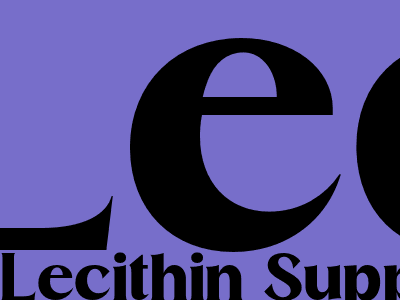Lecithin Supplement: Potential Benefits, Uses, and Safety Considerations
Introduction
Lecithin is a natural substance found in many foods, including soybeans, eggs, and nuts. It is a type of phospholipid, which are molecules that help form the membranes of cells. Lecithin has emulsifying properties, which means that it can help mix oil and water together. It is also a good source of choline, which is an essential nutrient for brain function.Potential Benefits of Lecithin
Lecithin is thought to have a number of potential health benefits, including:-
Improved cognitive function: Choline, a nutrient found in lecithin, is essential for brain function. Lecithin supplements have been shown to improve memory and cognitive function in both healthy adults and people with Alzheimer's disease.
-
Reduced risk of heart disease: Lecithin may help to lower cholesterol levels and reduce the risk of heart disease. One study found that people who took lecithin supplements for six months had a significant reduction in their LDL (bad) cholesterol levels.
-
Improved liver function: Lecithin may help to protect the liver from damage. One study found that people who took lecithin supplements for three months had a significant reduction in their liver enzymes, which are markers of liver damage.
Uses of Lecithin
Lecithin is used in a variety of food and cosmetic products, including:-
Emulsifier: Lecithin is used as an emulsifier in foods such as mayonnaise, salad dressings, and ice cream. It helps to keep the oil and water in these products from separating.
-
Stabilizer: Lecithin is used as a stabilizer in cosmetics such as lotions and creams. It helps to keep the ingredients in these products from separating and becoming unstable.
-
Dietary supplement: Lecithin is also available as a dietary supplement. It is typically taken in capsule or powder form.

تعليقات